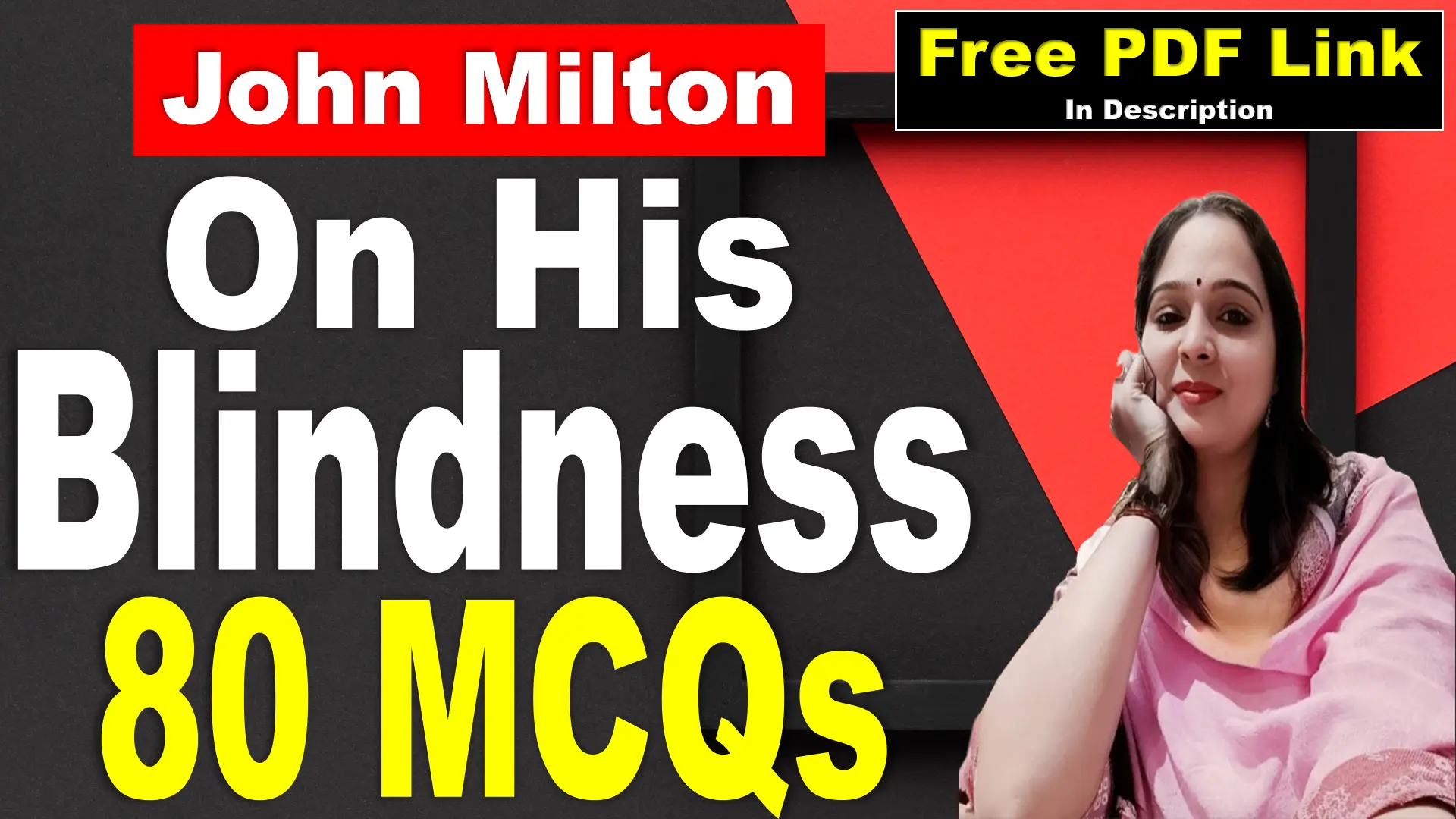
The Cup by Swami Vivekananda | The Cup Poem | Swami Vivekananda | Explanation | Summary | Word Meaning | Questions Answers | Critical Appreciation | Free PDF Download – Easy Literary Lessons
The Cup
This is your cup — the cup assigned
to you from the beginning.
Nay, My child, I know how much
of that dark drink is your own brew
Of fault and passion, ages long ago,
In the deep years of yesterday, I know.
This is your road — a painful road and drear.
I made the stones that never give you rest.
I set your friend in pleasant ways and clear,
And he shall come like you, unto My breast.
But you, My child, must travel here.
This is your task. It has no joy nor grace,
But it is not meant for any other hand,
And in My universe hath measured place,
Take it. I do not bid you understand.
I bid you close your eyes to see My face.
The Cup by Swami Vivekananda: YouTube Link
The Cup Poem Analysis
This is your cup — the cup assigned
to you from the beginning.
Explanation
This line introduces the central metaphor of the poem. Imagine a cup, not chosen by you, but specifically assigned to you from the very beginning of your existence. This cup represents your life journey, filled with all the experiences that will shape you.
Poetic devices
Metaphor: “Cup” represents life’s journey.
Enjambment: Runs onto the next line, creating a sense of incompleteness and anticipation.
Nay, My child, I know how much
of that dark drink is your own brew
Of fault and passion, ages long ago,
In the deep years of yesterday, I know.
Explanation
This line delves further into the contents of the cup. It’s not just a neutral drink, but a “dark drink” brewed by your own past actions and choices (“fault and passion”). This implies that life’s challenges and difficulties are not solely predetermined, but also influenced by the karma you’ve created. The speaker, seemingly a higher power, acknowledges your past and its impact on your present.
Poetic Device
Apostrophe: The speaker directly addresses the reader as “My child.”
Repetition: Repetition of “I know” emphasizes certainty.
Enjambment: Continues from the previous line, maintaining the flow.
Imagery: “Dark drink” and “deep years of yesterday” create vivid visuals.
Metaphor: the “dark drink” represents the consequences of past actions or karma.
This is your road — a painful road and drear.
Explanation
This line bluntly confronts the harsh reality of the journey. Your path is not a walk in the park; it’s a “painful road,” full of difficulties and hardships (“drear”). It’s a stark reminder that life isn’t always sunshine and rainbows.
Poetic Device
Metaphor: “Road” represents the journey of life.
I made the stones that never give you rest.
Explanation
This line adds another layer to the challenges you face. The “stones” represent the obstacles and setbacks on your path. The speaker, again seemingly a higher power, takes responsibility for placing these stones, suggesting they are purposeful and not random occurrences. This implies that the challenges you face are not meant to break you, but rather to shape you.
Poetic Device
Metaphor: “Stones” represent obstacles and hardships.
Personification – “stones” are given the human quality of denying rest.
I set your friend in pleasant ways and clear,
And he shall come like you, unto My breast.
Explanation
Here, the poem introduces a contrasting perspective. While your path might be difficult, others may have seemingly easier paths (“pleasant ways and clear”). However, the speaker assures you that despite the differences, everyone ultimately reaches the same destination (“unto My breast”). This could be interpreted as a reminder that life’s challenges are universal, and even though the journeys differ, the end goal is the same for all.
Poetic devices
Juxtaposition: the contrast between the friend’s pleasant path and the individual’s difficult road.
Simile – “he shall come like you, unto My breast” compares the friend’s journey to the speaker’s.
But you, My child, must travel here.
Explanation
This line emphasizes the importance of staying on your specific path, despite its difficulty. While others may have options, you must “travel here,” suggesting a preordained direction for your growth and learning.
This is your task. It has no joy nor grace,
Explanation
This line describes the task assigned to you. It’s not a glamorous or rewarding one (“no joy nor grace”). It might be tedious, thankless, or even painful. This could represent various challenges in life, both internal and external, that require dedication and perseverance.
Poetic devices
Metaphor – “task” symbolizes the assigned duty.
But it is not meant for any other hand,
And in My universe hath measured place,
Explanation
Despite the lack of immediate gratification, this line highlights the significance of your task. It’s not meant for anyone else (“not meant for any other hand”). You have a unique role to play, and your task has a specific “measured place” within the grand scheme of things. This could be interpreted as a call to embrace your individuality and contribute meaningfully to the world.
Poetic devices
Personification: “universe hath measured place” gives the universe the ability to assign tasks.
Metaphor: the “hand” represents the individual, and the “universe” represents the grand scheme of life.
Take it. I do not bid you understand.
Explanation
This line asks for acceptance, not understanding. You are not expected to fully grasp the purpose or meaning of your task (“I do not bid you understand”). This might be because the bigger picture is beyond human comprehension, or perhaps the true value lies in the journey itself, not the destination.
Poetic devices
Imperative sentence (the command “Take it” emphasizes the need for acceptance).
I bid you close your eyes to see My face.
Explanation
This line invites a shift in perspective. Instead of seeking intellectual explanations, the speaker suggests closing your eyes (“close your eyes”) and opening yourself to a deeper connection (“see My face”). This could be interpreted as a call for faith, trust, and intuition, trusting in something beyond the limitations of the mind.
Poetic device
Imperative sentence: (the command “close your eyes” emphasizes the need for introspection or spiritual realization).





